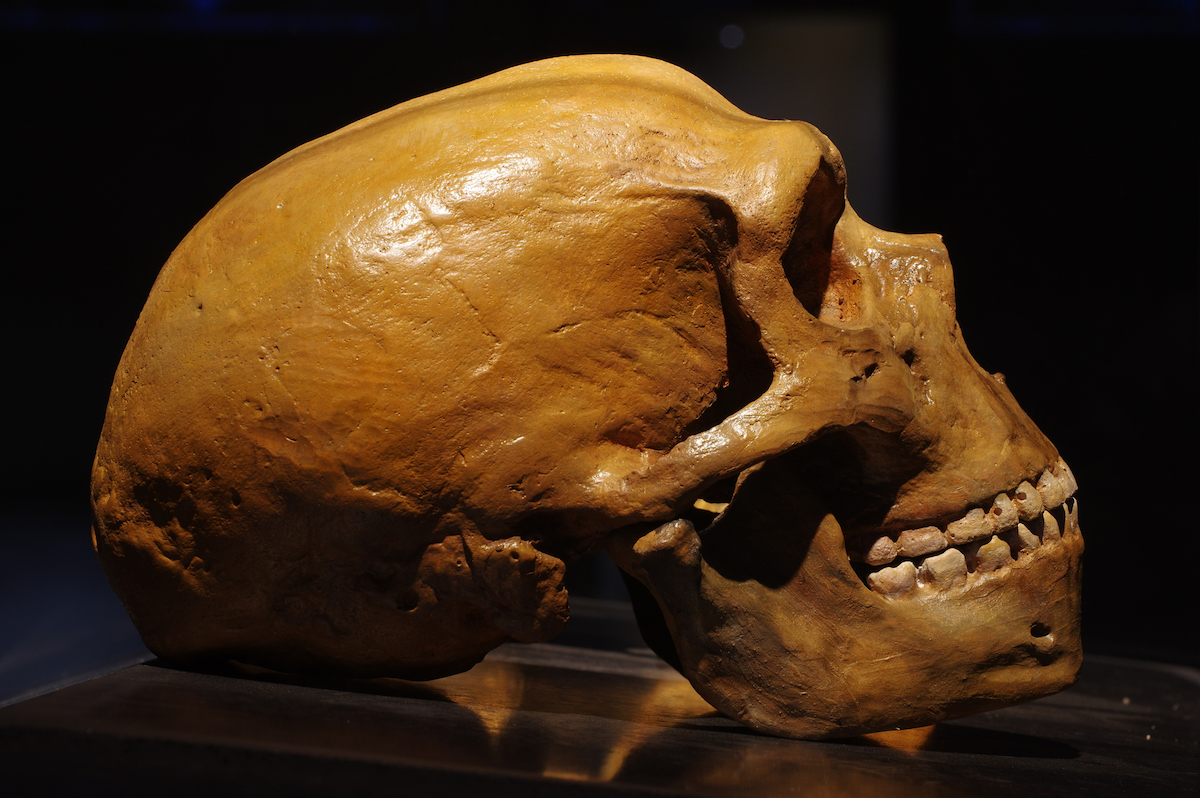<< Back
Study: Increased Risk of Severe COVID-19 Associated With Neanderthal Genes

September 30, 2020
Quick, check your family history for any Neanderthal links. A new study associates a strand of DNA passed on from Neanderthals to modern humans more than 50,000 years ago with a tripling of the risk of developing severe COVID-19.
The study, published Sept. 30 in Nature, pinpoints genetic variants in one region on chromosome 3 that is almost identical to that of a 50,000-year-old Neanderthal from southern Europe. Researchers believe the variants were transferred to Neanderthals, ancestors of modern humans, about 60,000 years ago. Neanderthals and humans interbred in the Stone Age.
An estimated 50 percent of South Asians and 16 percent of Europeans carry the gene today. According to the study, the cluster on chromosome 3 is found on 63 percent of the population in Bangladesh.
Scientists in Sweden and Germany discovered the link when comparing the DNA of severely ill COVD-19 patients with that from Neanderthals and a sister group, the Denisovans. They looked at more than 3,000 patients, including those who were hospitalized with a severe COVID-19 symptoms and others who were infected but not hospitalized.
“I almost fell off my chair because the segment of DNA was exactly the same as in the Neanderthal genome,” Hugo Zeberg, an assistant professor at the Karolinska Institute in Stockholm, told the Guardian.
Chromosomes are long DNA molecules that carry genetic information. They’re arranged in pairs, one inherited from each parent. Humans carry all their DNA in a total of 46 chromosomes.
The researchers do not know why the Neanderthal gene variant is associated with an increased risk of severe COVID-19, though one gene influences immune response and another has been associated with how the virus enters human cells.